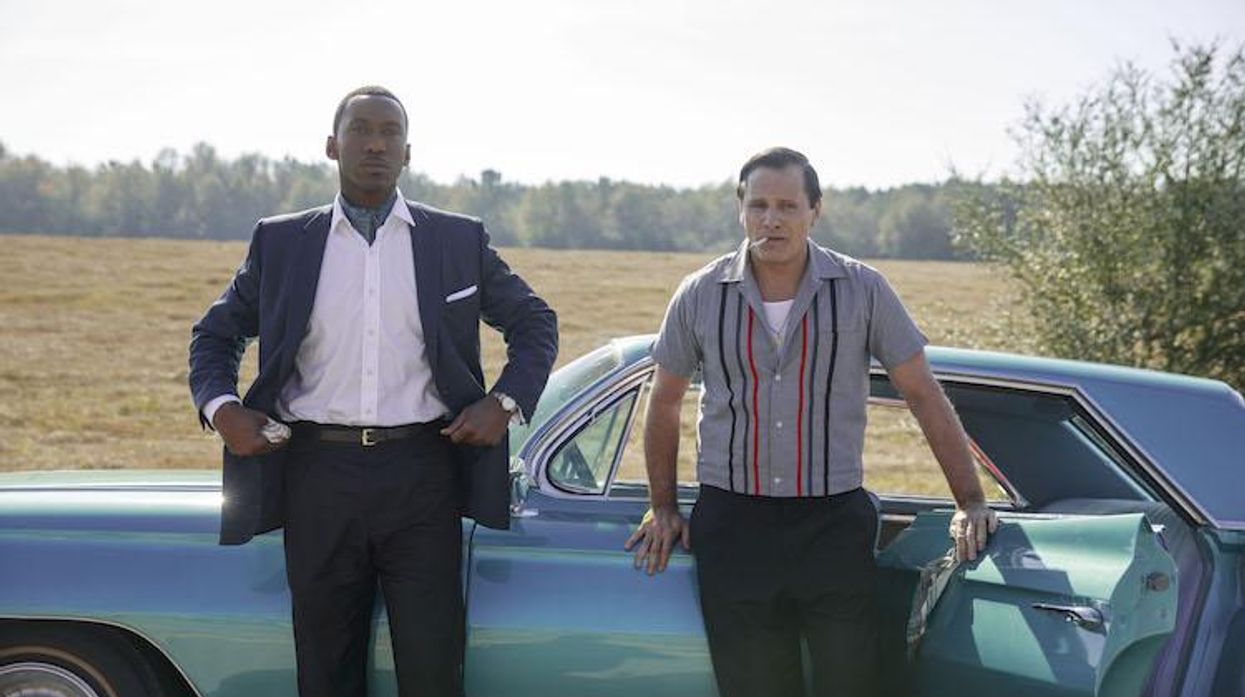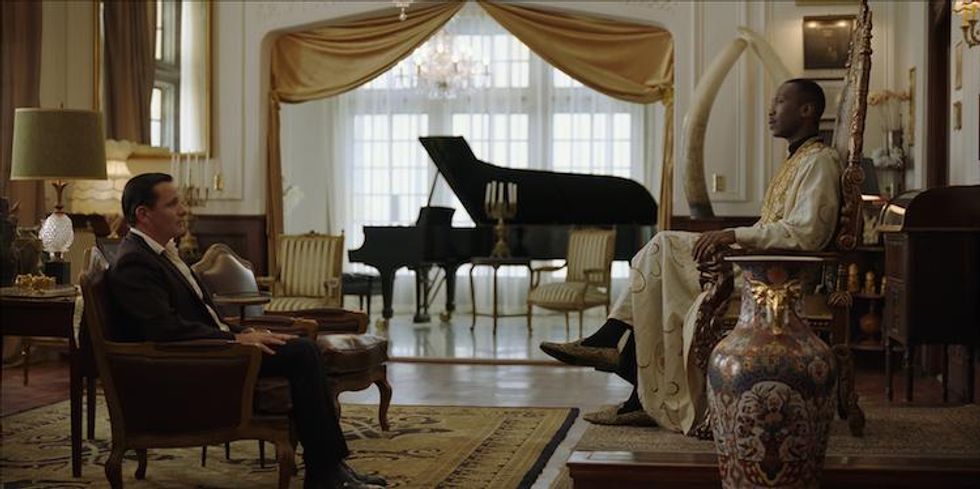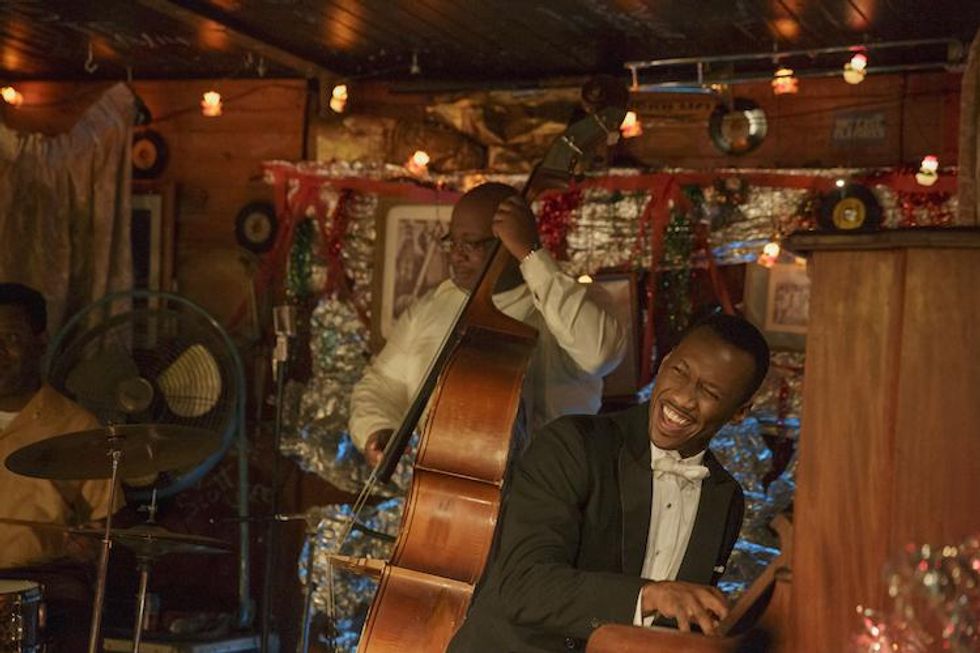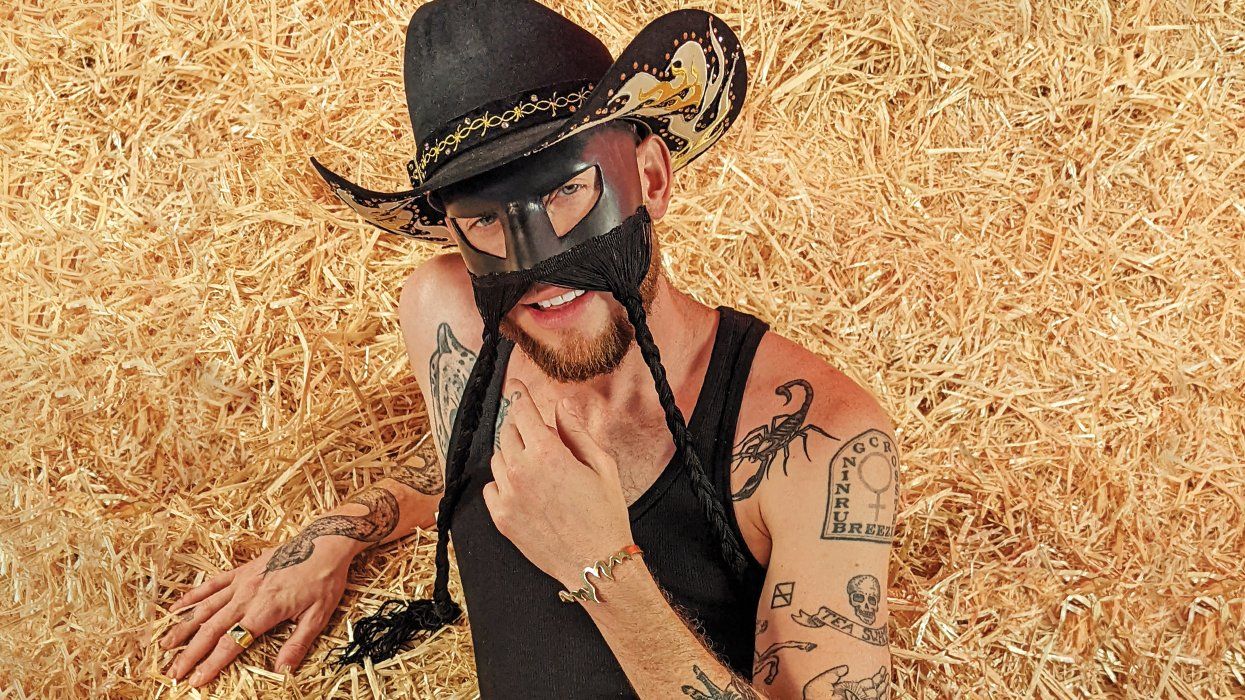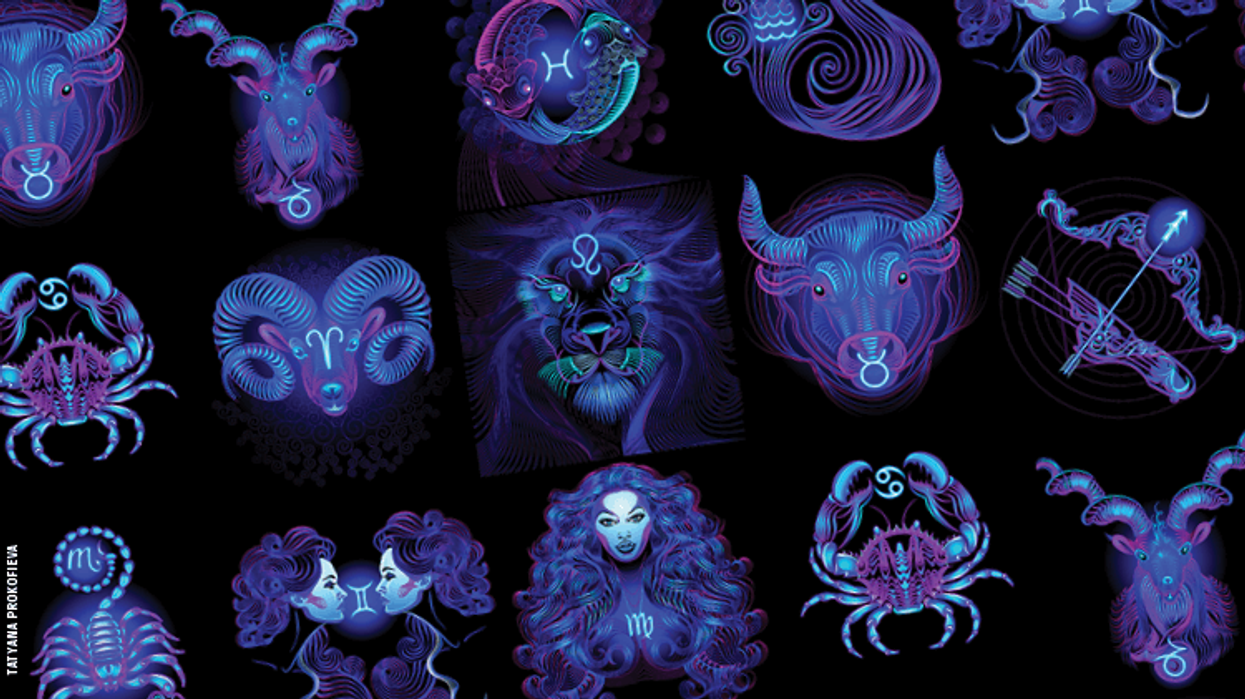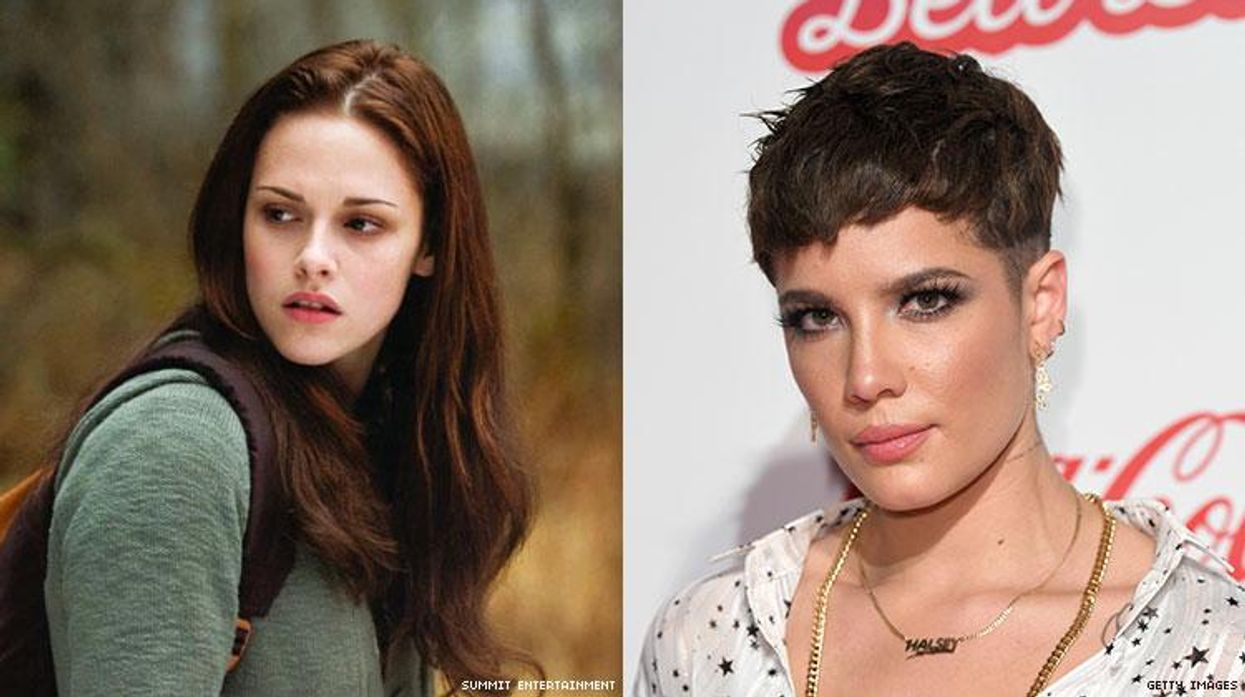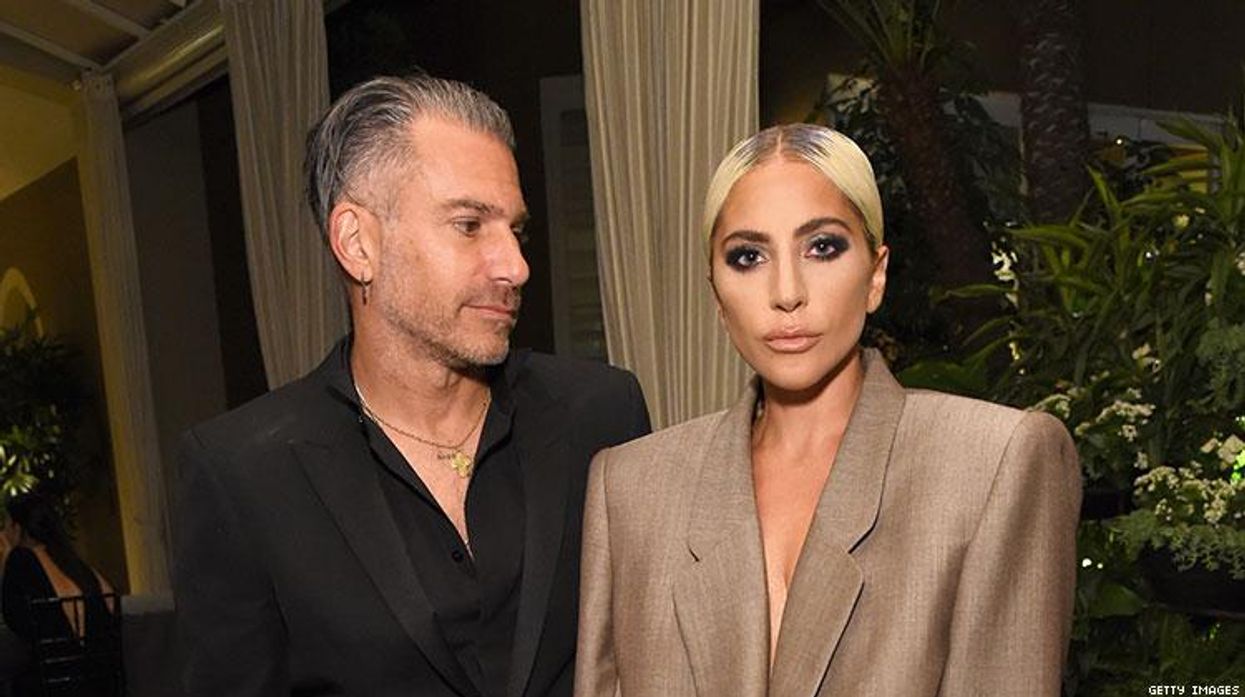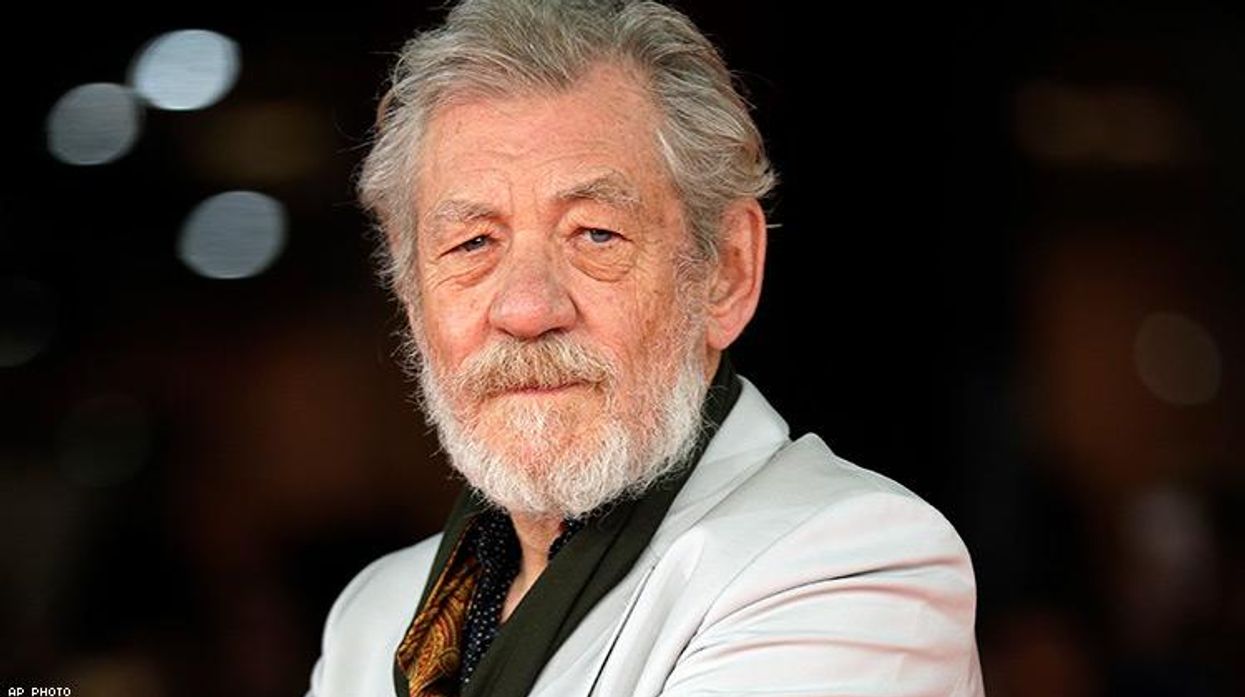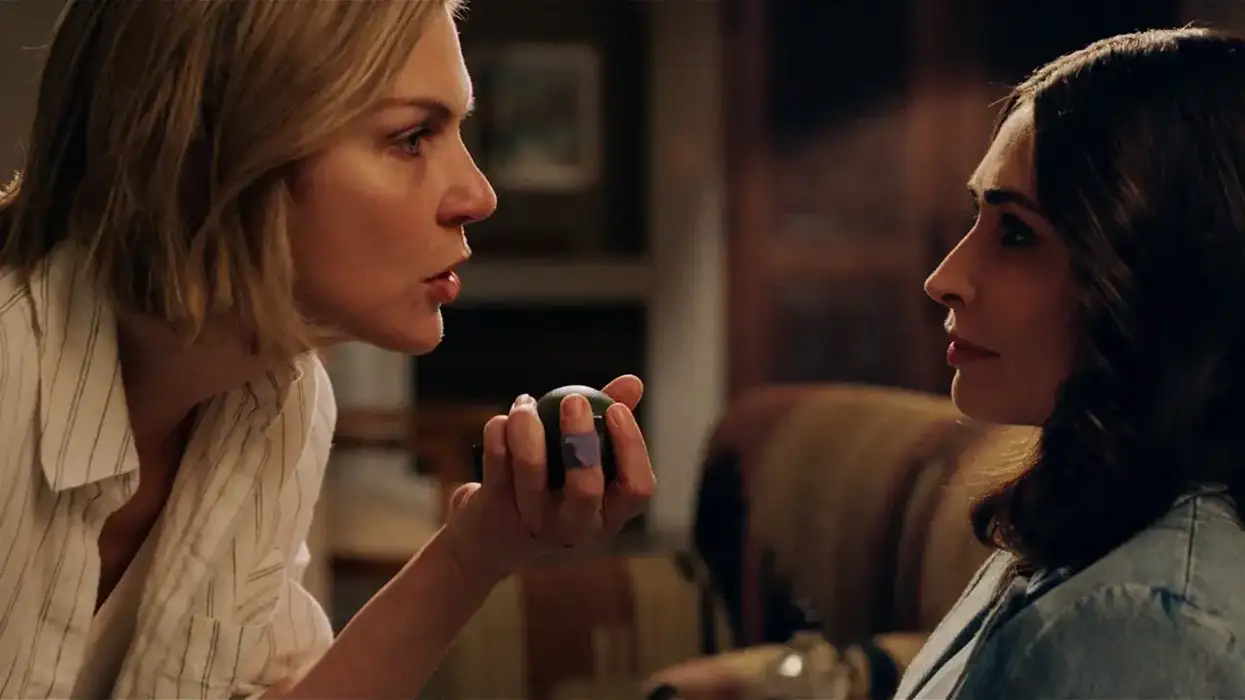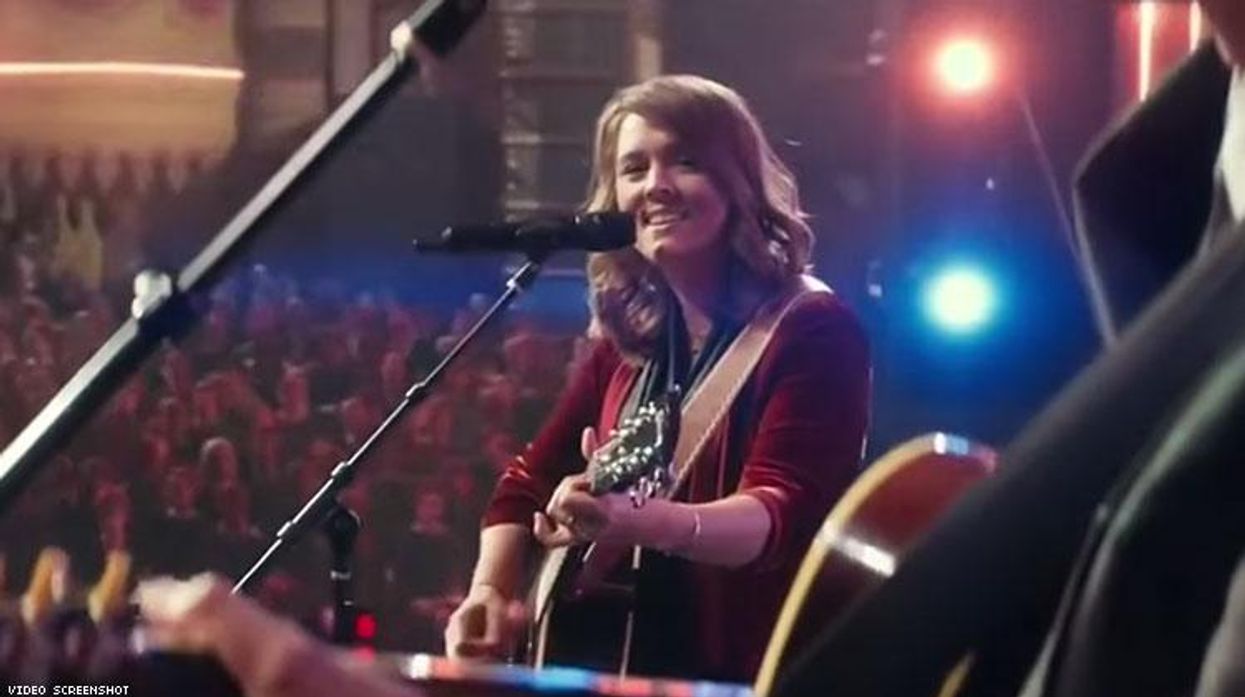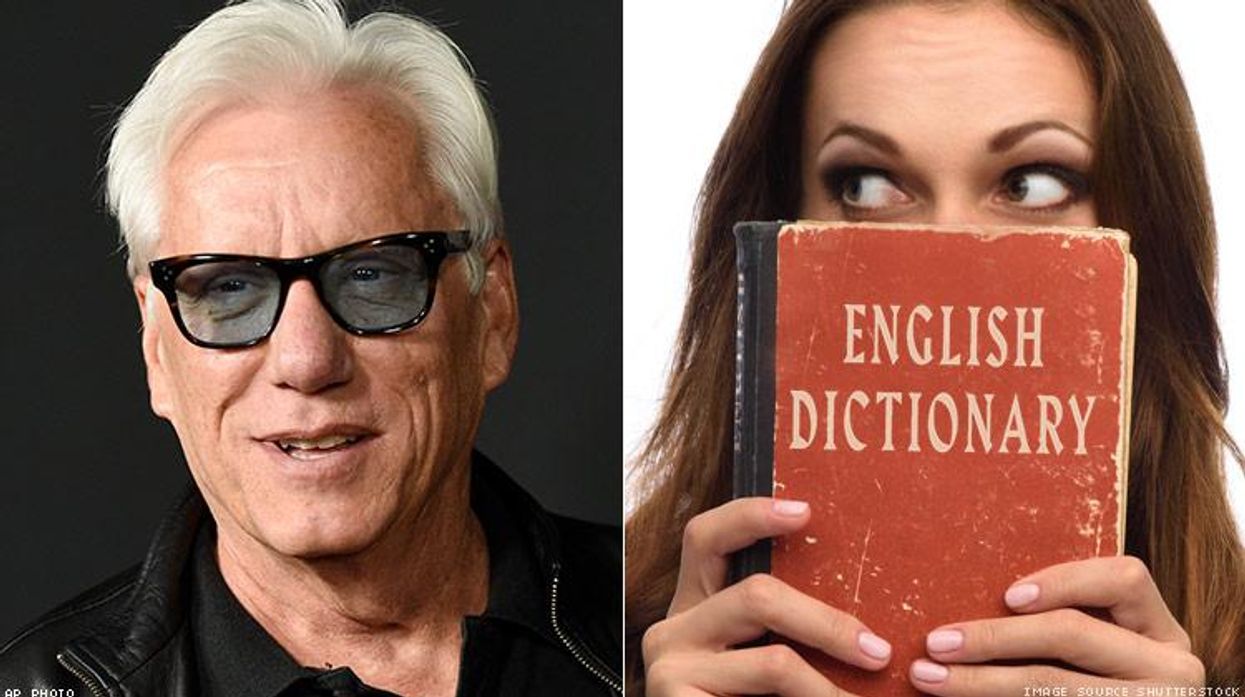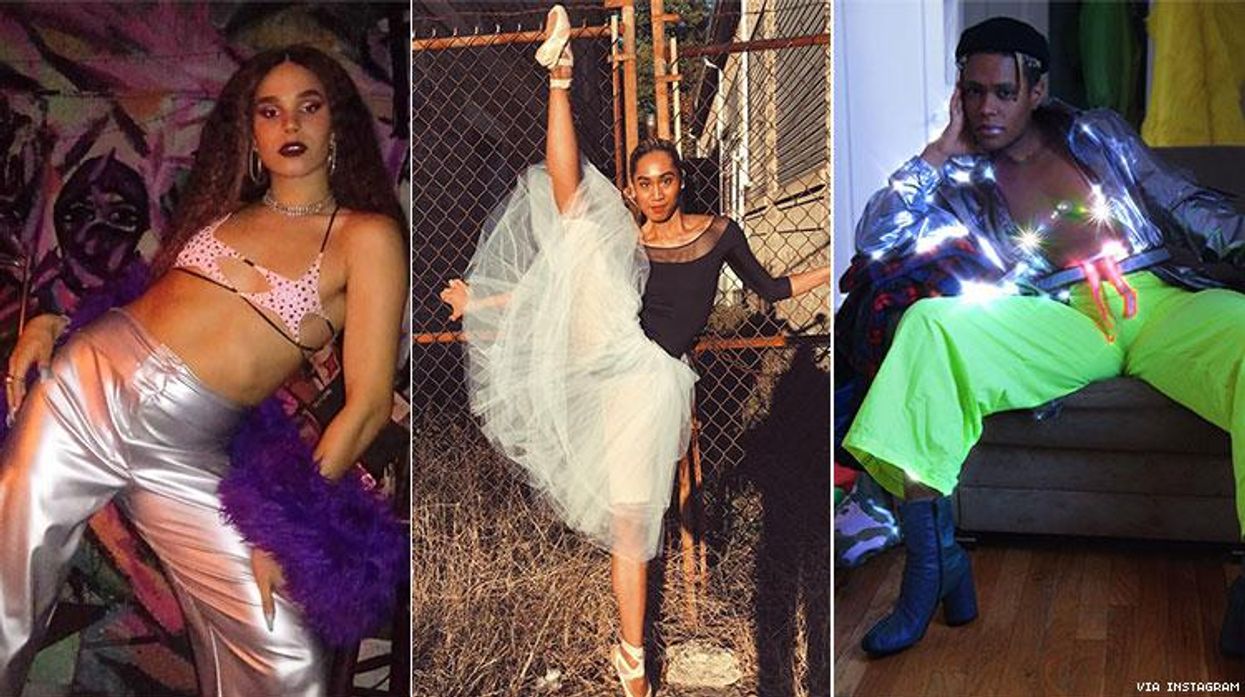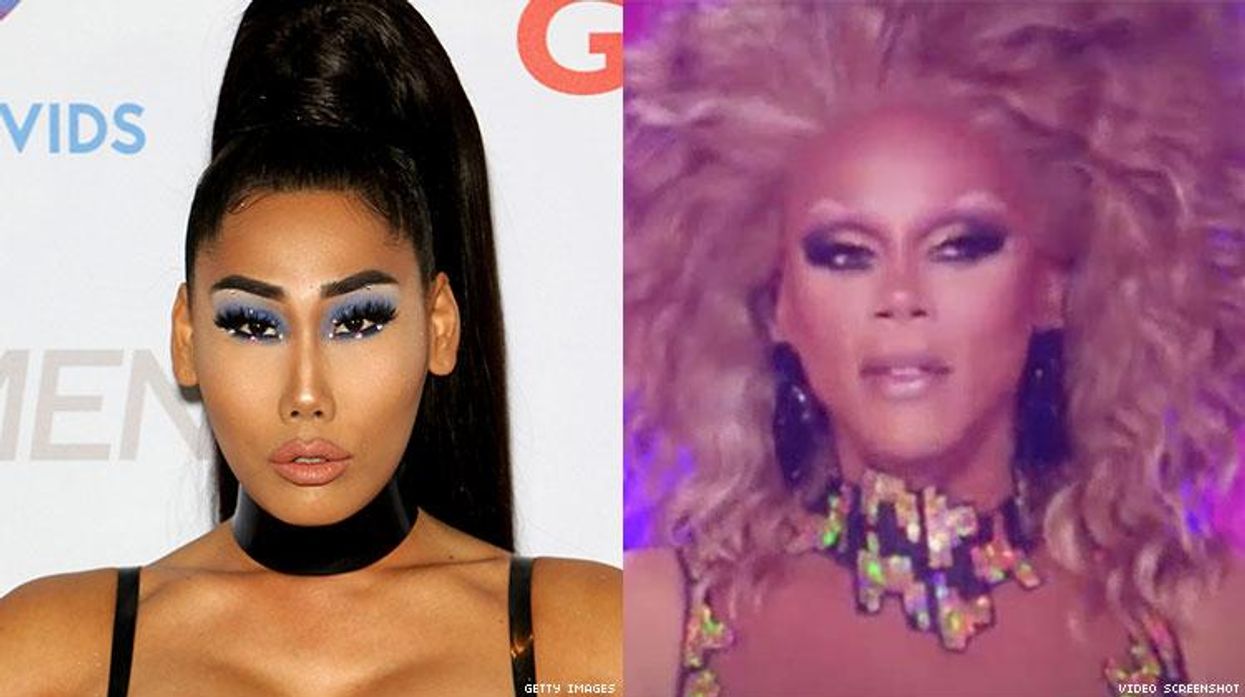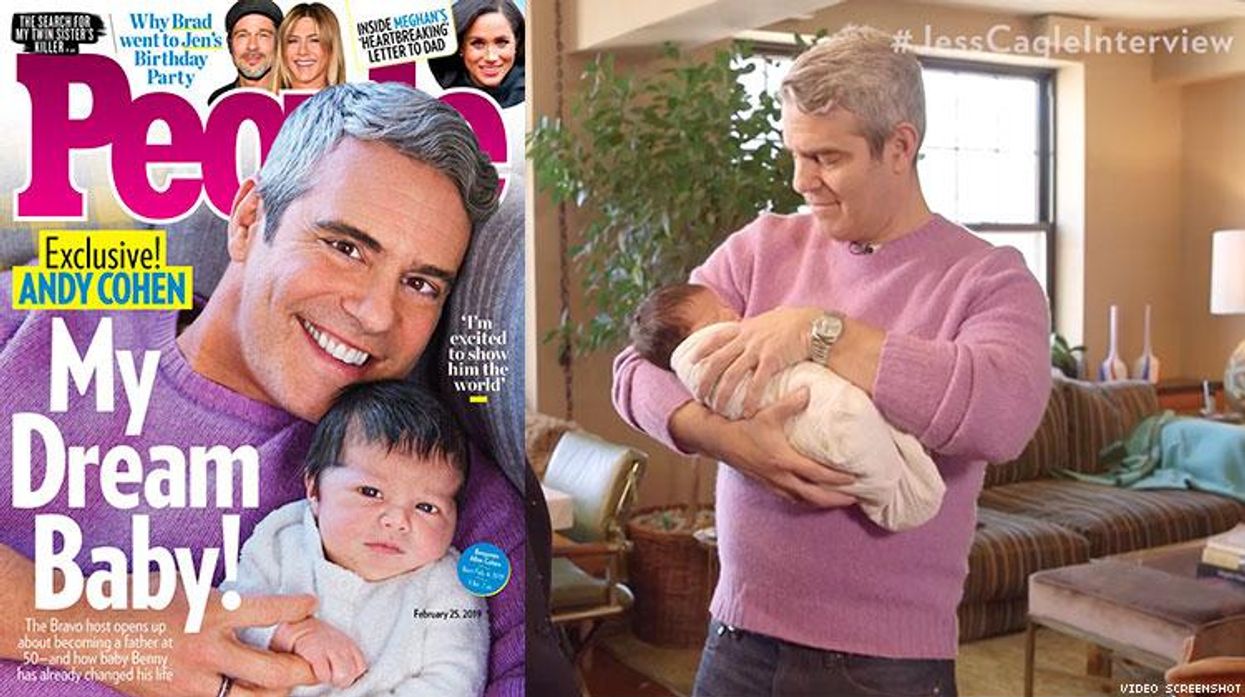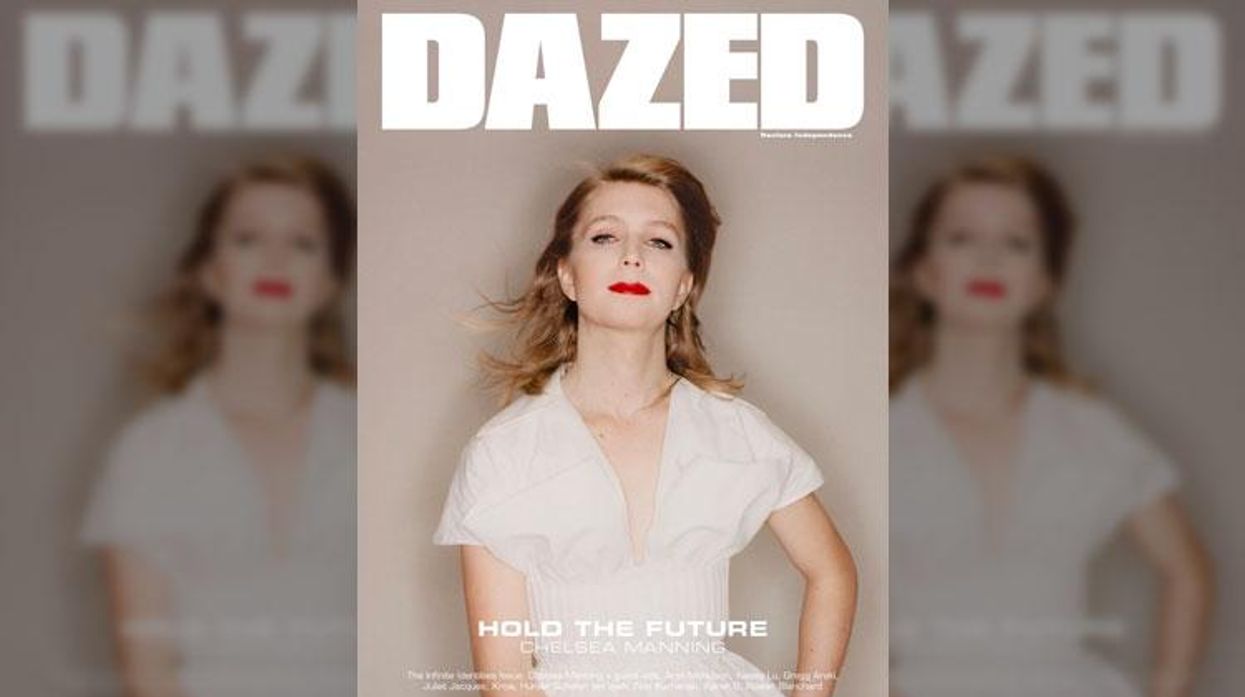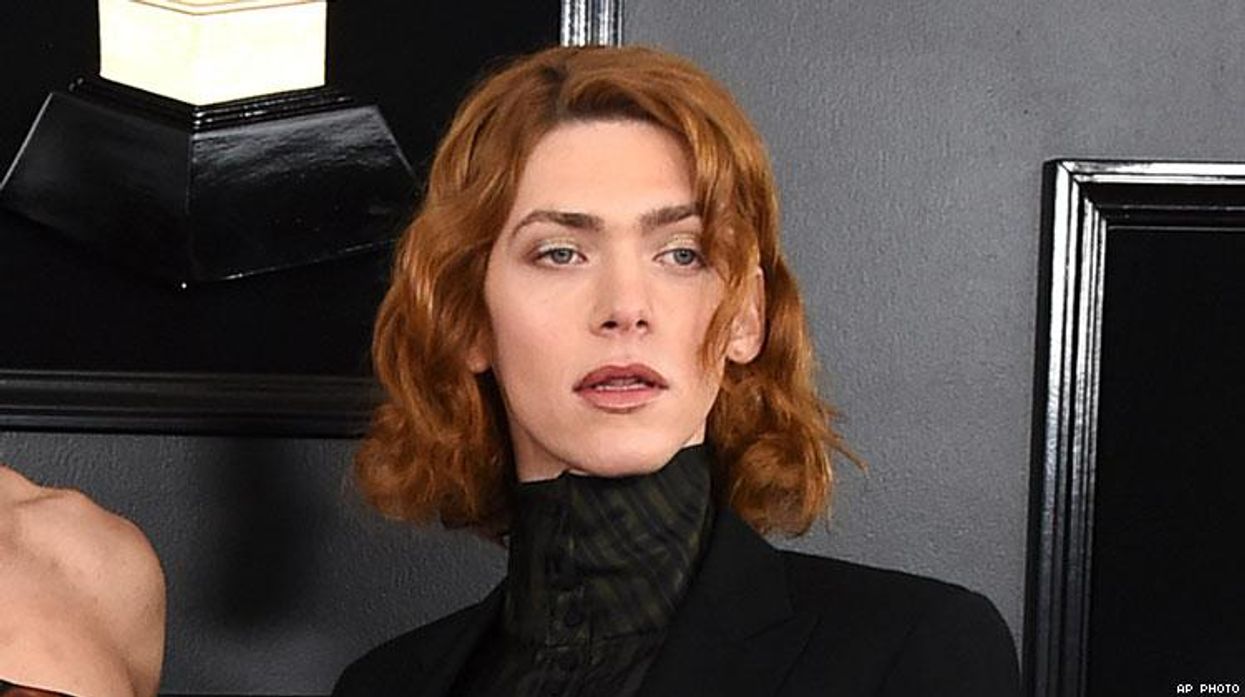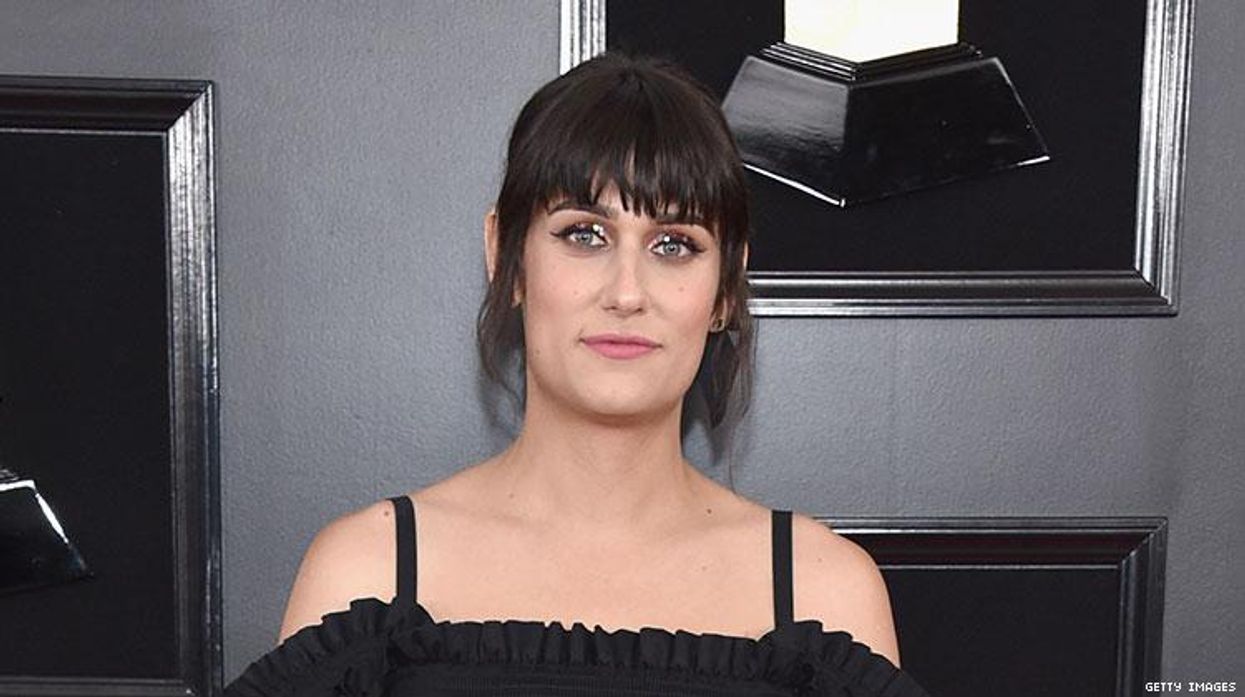Spoiler Alert: The below story might contain spoilers for Green Book. Proceed at your own risk.
If films about white people and their racist families are going to have any purpose in 2018, let it be to help unearth the stories of queer folks of color whose legacies have been lost in the annals of history. Green Book, which hit theaters nationwide on Thanksgiving, thankfully does just that.
Directed by There's Something About Mary's Peter Farrelly, the picture follows Tony Lip (Viggo Mortensen), a working-class, casually racist bouncer who becomes the driver of Dr. Don Shirley, a black classical pianist (Moonlight's Oscar-winning Mahershala Ali) on a tour of venues through a Jim Crow-era South. In order to avoid the potentially fatal ignorance that comes with the task at hand -- for Dr. Shirley, that is -- Lip must make use of his Italian charm and the Negro Motorist's Green Book -- a publication used by black travelers in the South that listed the restaurants and hotels that would serve them. On the tour, the pair begin a lifelong relationship as friends that upends their initial prejudices.
Since the film's Toronto International Film Festival premiere in September, where it won the audience award, moviegoers have generally favored the "based on a true friendship" tale. Film critics, on the other hand, find themselves grappling with the notion that it might be the white savior, feel-good movie of award season. Because, honestly, who really wants another Driving Miss Daisy or The Help?
But no matter how one comes down on such a necessary debate, what's true is that after seeing Green Book, hundreds of thousands will know the name and (partial) story of a black queer man and his historic accomplishments. And if you're not going to support it, that's fine too.
Still, to further your education, below are five facts you should know about musical genius Dr. Don Shirley.
He first started playing piano at 2 years old
Born in Kingston, Jamaica, Donald Walbridge Shirley was raised in Pensacola, Florida by his father, an Episcopal minister, and mother, a teacher. A musical prodigy, he was studying theory at the prestigious Leningrad Conservatory of Music after playing for just seven years -- at only 9 years old. He also studied music at the Catholic University of America in Washington, D.C. and debuted on the concert stage at 18, playing Tchaikovsky's Piano Concerto No. 1 in B flat.
Over the course of his life, he mastered eight languages and earned two doctorates, in music and psychology. You know, light work.
Though classical music was his passion, he was forced to play pop music
A few years after his concert debut, Shirley came into contact with Sol Hurok, an impresario who had helped Marian Anderson, one of the most celebrated singers of the 20th century of any race, break the color barrier. According to a New York Times obit, Hurok, among other naysayers, told him that a black pianist would never gain prominence in the United States.
As such, Shirley started playing in nightclubs, creating what some have called his own genre, synthesizing popular and classical sounds. He was, in a way, to classical music what Whitney Houston was to Dolly Parton's "I Will Always Love You," imbuing standards with a jazzy, less European flair to critical acclaim.
Still, he rebuffed being called a jazz pianist or an "entertainer"
According to a 1982 interview with the New York Times, Shirley described jazz piano players as folks who "smoke while they're playing, and they'll put the glass of whisky on the piano, and then they'll get mad when they're not respected like Arthur Rubinstein.
"You don't see Arthur Rubinstein smoking and putting a glass on the piano," he said. "I am not an entertainer. But I'm running the risk of being considered an entertainer by going into a nightclub because that's what they have in there. I don't want anybody to know me well enough to slap me on the back and say, 'Hey, baby.' The black experience through music, with a sense of dignity, that's all I have ever tried to do."
His sense of "dignity" can be seen in photos of his resplendent apartment above New York's Carnegie Hall, where he was a resident since 1956. His home was like a museum, littered with rare artifacts and gifts he received from admirers of his work.
Green Book received Shirley's approval before his death
In the late 1980s, Tony's son, Nick Vallelonga, told the pair he thought their friendship would make a great movie. Shirley gave his blessing under one condition. He wanted Vallelonga to wait until he died, according to a TIME interview. Thought it's not clear why Shirley may have wanted Vallelonga to wait, Tony's son supposes it had to do with how private of a person the musician was.
Tony Lip and Dr. Shirley died within five months of each other, in January and April 2013 respectively. Vallelonga serves as co-writer and producer of Green Book.
Do note, Shirley's family, who was not consulted about the film, are apparently in opposition to it, saying it's "full of lies."
Dr. Shirley never came out
In one Green Book scene, Tony Lip comes to Shirley's rescue after he's been apprehended by a cop who caught him in a YMCA shower seemingly having sex with another man. It's the film's only reference to Shirley's sexuality, save an earlier bit where we find out he was once married to a woman.
In press interviews, Vallelonga contends that every bit of the film happened in real life, albeit on a more extended timeline -- almost two years as opposed to the flick's two months. It's this moment, however, that he believes influenced Shirley to only greenlight the film upon his death. After all, just being black during that time period was a hindrance in and of itself, despite one's brilliance.
Still, it's unclear how Shirley himself identified on the sexuality spectrum. Unfortunately, we may never know. That is until someone actually makes the movie we all thought we were going to see.


